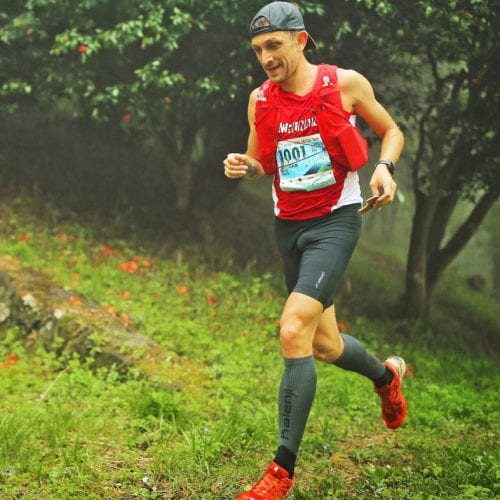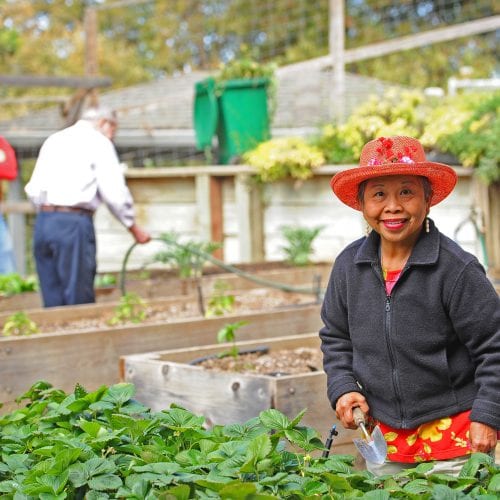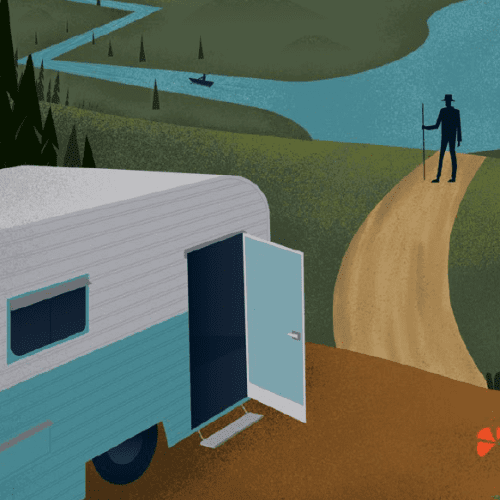
The Forever Pace
A 100-mile footrace is all in a day’s work for one ultramarathon running Mason.
By Antone R.E. Peirucci
The Jack Liefer Ranch sprawls across the arid hills south of Temecula, in Southern California. In late spring, bright flashes of flowering desert marigold and climbing snapdragon highlight coarse sedge grass and woody shrubs of chamise. Rainwater from winter showers collects in the creases and folds of the hills, where groves of alders, black oaks, and sycamores grow. Most of the time, a lone herd of cattle, with several Longhorn bulls in the lead, has the place to themselves. Each June or July, however, their idyllic domain is interrupted briefly by the sound of dozens of cars clambering along the dirt path that leads into the heart of the ranch.
p.p1 {margin: 0.0px 0.0px 0.0px 0.0px; text-align: justify; line-height: 9.3px; font: 9.0px Times}
p.p2 {margin: 0.0px 0.0px 0.0px 0.0px; text-align: justify; text-indent: 12.0px; line-height: 9.3px; font: 9.0px Times}
For one day each of the past 24 years, Masons from Temecula Catalina Island Lodge No. 524 have descended on Liefer Ranch. This year marks the silver anniversary of their annual sojourn, a trip that has become an important tradition within the lodge: the conducting of an outdoor degree. In late July, one lucky candidate will be the 25th man raised as a Master Mason under the watchful eyes of Liefer’s cattle, who congregate along the fences where the degree ceremony is conducted. “It certainly gives a whole new meaning to the term cowans,” Robert English, Lodge Master, quips.
The outdoor ceremony here on the property of a former brother is unusual within Masonry, but not unheard of, particularly in the West. For instance, Castle Lodge No. 122 in Eagle, Colorado, also meets during the summer months on a private ranch; while at least one other lodge in Montana holds outdoors meetings with tilers stationed on horseback bedecked with specially made horse aprons.
The Masonic Homes’ Union City campus also hosts outdoor degree ceremonies for lodges around the state. The specially built lodge was erected in 2012 by more than 30 local Masons, and is available for rent to all California lodges from May through September.
“It certainly gives a whole new meaning to the term cowans”
In the pioneer days, outdoor meetings were common. One of the more famous examples is at Independence Rock in central Wyoming, a landmark and way-station on the old Oregon Trail. The rock was the first meeting place for Freemasons in what was to become the State of Wyoming. There’s a similar site in Montana at the summit of Mullan Pass, where a stone altar and officer’s stations mark the first recorded meeting place of Freemasons there in 1862. Even longer ago, Masons met wherever they could find seclusion, whether in a flat above a pub or in a quiet meadow.
Now, however, the opportunity to experience an outdoor degree is rare enough to draw a crowd—this year’s degree ceremony is expected to attract well over 100 sideliners. “I think people appreciate the throwback nature of it,” English says. “Sideliners and officers get to experience something that directly ties them to Masonic experiences from hundreds of years ago.”
Aside from the turnout, the biggest difference between this degree and most others is, of course, environmental. In place of the checkerboard floor and blue walls are a dirt-packed stretch of ground roughly 70 feet by 30 feet and a grove of trees outlining the space. The day of the event, officers walk the grounds raking up leaves and packing down the dirt. In the center of the open space stands a large boulder, which they use for their altar. Every other piece of paraphernalia is stored in a shipping container on site. “This isn’t an easy thing to put on, by any means,” says Tim Tagget, the Junior Warden of the lodge. Tagget was raised a Master Mason at the ranch in 2016.
Both English and Tagget say the extra work of preparing the outdoor degree is well worth it. Being out in nature, they say, enhances the experience for all who attend, and has a special impact on candidates. Having gone through two degrees inside the lodge, Master Mason candidates appreciate the change of scenery. “When you’re inside the lodge, you have the AC cranking or the heater on,” Tagget says. That sense of comfort and familiarity changes when a candidate suddenly finds himself in unfamiliar territory.
At the Liefer Ranch, the gentle breeze filtering through the cordon of ancient oaks carries with it more than just the smell of late-blooming lupine and thistle sage. It carries the ineffable joy of the outdoors. “There’s just something about feeling the air and the elements against your face,” English says. “Not being confined—it’s really freeing.”
As Tagget explains it, all those elements—the motes of dust caught mid-air by the light streaming through the trees, the harsh scrape of boots against the earth, the bellowing of a bull in the distance—keeps a candidate’s mind on the task at hand. “It forces you to really be in the moment and notice all the little things,” he says.
In the end, the memories of the outdoor degrees bring a special meaning to all involved—and helps bind the lodge together. “As a fraternity we always try to instill a sense of trust among each other, but during the outdoor degree, where everything is new and the sun is beating down on you and the ground is uneven, you really do have to trust your brothers even more than usual.”
PHOTO CREDIT: Courtesy of Library of Congress.

A 100-mile footrace is all in a day’s work for one ultramarathon running Mason.

A little slice of nature is transforming care at the Masonic Homes’ campuses.

How a gift from one Mason to another launched a fellowship of camping enthusiasts.